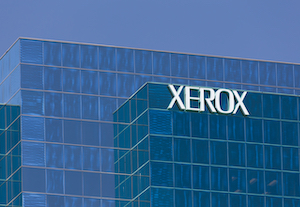 Fiduciaries of a $4 billion plan have been sued for excessive recordkeeping charges.
Fiduciaries of a $4 billion plan have been sued for excessive recordkeeping charges.
In this case plaintiffs Chris Carrigan, Michael Venti, and Sylvain Yelle (represented here by Nichols Kaster PLLP and Garrison, Levin-Epstein, Fitzgerald & Pirrotti PC) have brought suit against Defendants Xerox Corporation, the Xerox Corporation Plan Administrator Committee and John Does 1-30 for breaching their fiduciary duties “with respect to the Xerox Corporation Savings Plan in violation of ERISA, to the detriment of the Plan, its participants, and their beneficiaries.”
The (only) 22-page suit (Carrigan v. Xerox Corp., D. Conn., No. 3:21-cv-01085, complaint 8/11/21) begins by outlining the potential for imprudent and disloyal conduct with a defined contribution plan is “especially high because the plan’s fiduciaries can benefit the company through their administration of the plan by, for example, hiring service providers affiliated with the plan sponsor that an unconflicted fiduciary would not have utilized.” In fact, shortly after Xerox entered the retirement plan recordkeeping business in the early 2010s, the defendants hired Xerox as the Plan’s recordkeeper, and passed Xerox’s fees, “which were well above reasonable market rates,” according to the suit, “onto the Plan’s participants.”
They go on to note that “from the time Defendants hired Xerox’s recordkeeping affiliate, Xerox HR Benefit Services, in 2013 until the time that Defendants belatedly switched to an unaffiliated recordkeeper in 2021, the Plan’s recordkeeping expenses more than doubled from $54 per participant in 2013 to $136 per participant by 2019 (the last year for which data was available), all during a period when marketplace rates for defined contribution recordkeeping services were falling dramatically.”
The suit goes on to claim that the defendants’ “financial incentive to use the affiliated recordkeeper grew even stronger after Xerox HR was spun off into an independent entity, Conduent HR Services, as Xerox and its shareholders acquired a material ownership stake in Conduent as part of the spinoff.” The suit claims that, rather than finding another recordkeeper or renegotiating a better deal, they retained Conduent as the Plan’s recordkeeper for nearly five years after the spinoff “despite the Plan’s recordkeeping expenses almost doubling immediately after the spinoff was finalized.”
Ultimately then, “by retaining the services of an affiliated recordkeeper and failing to engage in a prudent investigation of other service providers in the marketplace, Defendants allowed the Plan to pay as much as four times more than what the Plan would have paid in the open market for recordkeeping services of comparable or superior quality,” the plaintiffs argue. “As a result, participants paid millions of dollars per year in excessive fees from 2015 through 2021.”
The plaintiffs claim that between 2006 and 2016, recordkeeping costs dropped by approximately 50% on a per-participant basis and have continued to decline since then (citing, indirectly, data from NEPC).[i] That said, as the plan has had between 21,000 and 31,000 participants, and between $3.6 billion and $4.4 billion in assets during the class period, “the Plan at all times had significant leverage to negotiate competitive rates for high quality recordkeeping services,” they claim.
“Based on Plaintiffs’ investigation,” they continue, “from 2015 to the present, a prudent and loyal fiduciary of a similarly sized plan (in terms of participant count) could have obtained comparable recordkeeping services of like or superior quality for $30 to $35 per participant (or possibly lower) from recordkeepers such as Fidelity, Vanguard, Alight, and Empower.” They go on to point to fees paid by “similar” plans (at least in terms of participant count)—Bechtel, WPP Group USA, Kinder Morgan, Nike, Caterpillar, and Henry Ford Health System—all of which paid recordkeeping fees of $35 per participant or less in every year between 2015 and 2019, according to the suit.
“A prudent and loyal fiduciary would have closely monitored the Plan’s recordkeeping expenses and engaged in a rigorous benchmarking analysis, either on its own or by working with an independent consultant, and would have discovered that the Plan was paying far too much for recordkeeping. Alternatively, the Plan could have performed a request for proposal (RFP) and discovered that other recordkeepers would have provided the same services at significantly lower cost.”
In sum then, they argue, “the Plan’s excessive recordkeeping expenses demonstrate that Defendants failed to engage in prudent monitoring of the Plan’s recordkeeping expenses and engage in prudent practices to keep recordkeeping expenses at competitive levels, and/or that Defendants permitted participants to pay excessive recordkeeping expenses because it was in Xerox’s financial interest. Either way, the process by which Defendants managed the Plan’s recordkeeping services “would have been tainted by failure of effort, competence, or loyalty,” each of which constitutes a “breach of fiduciary duty,” the suit concludes.
Will that be enough? We shall see…
NOTE: In litigation there are always (at least) two sides to every story. However factual it may turn out to be, the initial lawsuit in any action is only one side, and one generally crafted toward a particular result. In our coverage you'll see descriptions of events qualified with statements such as “the suit says,” or “the plaintiffs allege”—and qualifiers should serve as a reminder of that reality.
[i] The suit points to the choice of pricing these services per participant or asset-based, but doesn’t claim an issue here either way.

